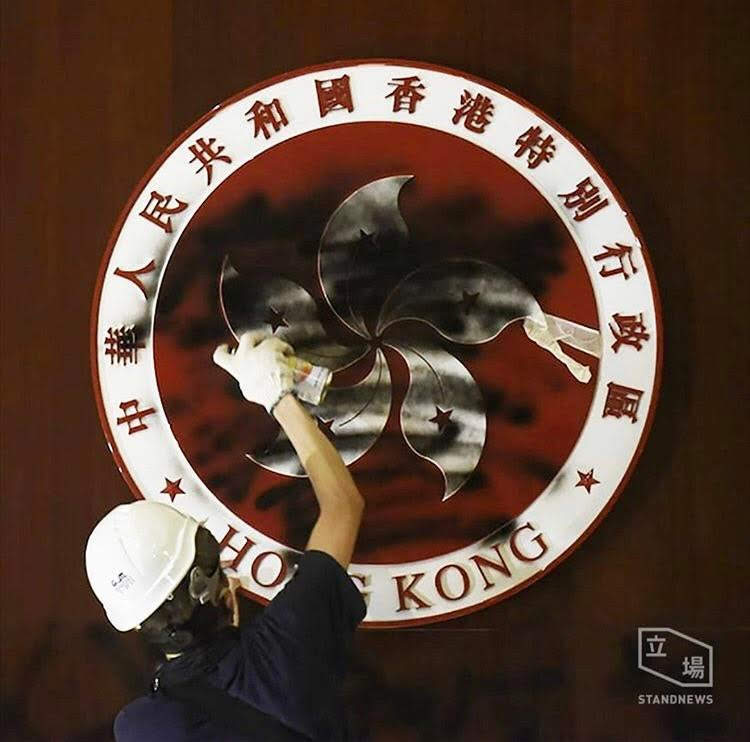Opinion: Why Hong Kong, and The Protests are So Important
A pro-democrocy protester sprays black spray-paint on the emblem of the Hong Kong Special Administrative Region inside the Legislative Council Chamber on July 1, 2019. Photo Credit: The Stand News.
Five years after the Umbrella Movement in 2014, Hong Kongers are back to defend their city.
Hong Kong, once called the “Pearl of the Orient,” is now in the middle of a full-blown political crisis which will change the territory forever. Even though them movement began as opposition to an Extradition Bill, the goals have changed significantly since then.
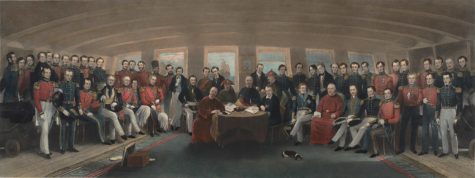
Hong Kong is different from the rest of China due to the fact that the British ruled the former colony from 1841 to June 30, 1997. Under the British, Hong Kong thrived with a capitalist, and free society. Both western and Asian values blended into a culture that is unique to the territory itself.
Hong Kong was occupied by the British Empire in 1841 during the first Opium War against China during the Qing Dynasty. On Aug 29, 1842, the Treaty of Nanking was signed, which ceded Hong Kong Island to the British in perpetuity, meaning forever. After the second Opium War, the Convention of Peking ceded Kowloon peninsula and Stonecutters Island in perpetuity to the British.
In order to have more land to defend the young British colony from the Chinese and more land to expand and farm, the British and Qing China signed Convention for the Extension of Hong Kong Territory in 1998. The treaty called for an extension of the territory to the present Shenzhen River to the north. The lease took effect on July 1, 1898 and was to be a 99-year lease. But, British negotiators considered the land lease to be “as good as forever.”
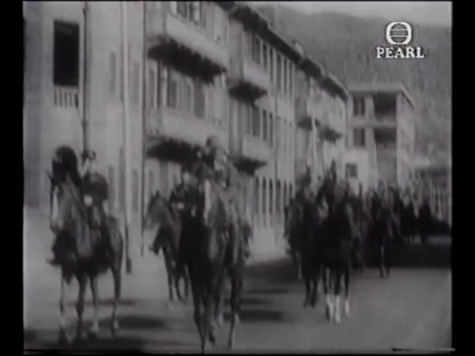
Hong Kong was not the first European colony in the area, across the Pearl River Delta to the west was the colony of Macau, or Macao. Macau was controlled then by Portugal since 1557 as an unofficial Portuguese settlement and then an official colony starting in 1889.
Hong Kong slowly grew to be a center in the region for commerce and international trade. It was also a place where the east met the west. Hong Kong would in time become one of its jewels in the British Empire.
On December 8, 1941, Hong Kong was invaded by the Japanese and bombed from the air. The weak troops from Canada, India, and the UK fought the Japanese. They retreated to defend Hong Kong Island. The defense of the Island was to no avail and Hong Kong Governor, Sir Mark Aitchison Young surrendered the colony to the Japanese on Dec 23, 1941. The Japanese occupation ended with the Japanese surrender at the end of World War Two in 1945.
After the War was over, the Chinese Civil War with Mao Zedong’s Communist and Generalissimo Chiang Kai Shek’s Nationalist/Kuomintang forces fighting against each other. Slowly, the Communists pushed the Nationalists off the Chinese mainland and to the island of Taiwan.
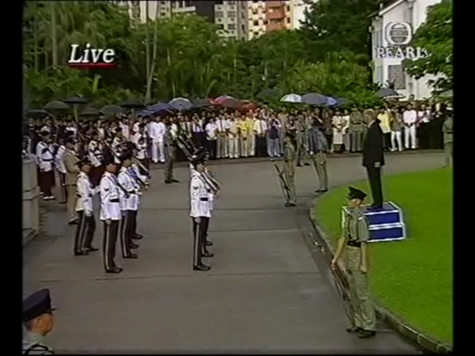
In the wake of the Communist advance, many Chinese refugees fleeing the communists traveled to Hong Kong for freedom and safety. Shanghai in particular, was a busy merchant city, but the advance of the communists caused many of the taipans and businessmen to move themselves and their businesses to Hong Kong. This led to a drastic population increase in Hong Kong and new businesses to flourish.
Before the Handover to China, both sides agreed to keep Hong Kong, Hong Kong. To allow a smooth transfer of power between both nations and keep the way of life the same, the Sino-British Joint Declaration of 1984 was signed by the then Prime Minister Margaret Thatcher and Chinese Leader Deng Xiaoping. The Joint-Declaration put Hong Kong under the policy of “one country, two systems.”
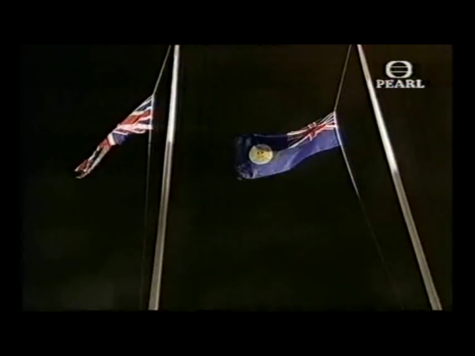
As agreed, the British transferred sovereignty over Hong Kong to the People’s Republic of China at the stroke of midnight on July 1, 1997. The Union Jack was lowered, and the red and five starred flag of China was raised. The now former governor Patten, and the Prince of Wales then departed on the Royal Yacht Britannia.
The Basic Law was later created and agreed to by both sides as the main constitution equivalent for Hong Kong. Both documents took effect on July 1, 1997. However, both documents, and Hong Kong’s “autonomous” status as a Special Administrative Region also will expiration date, July 1, 2047.
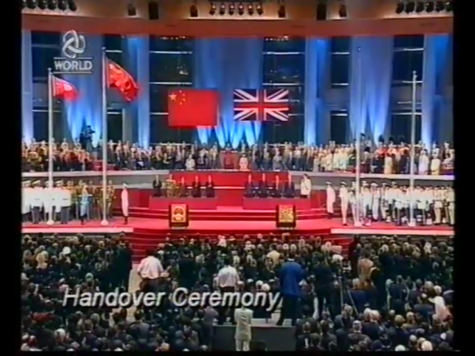
Hong Kong’s version of a parliament is called the Legislative Council or LegCo. LegCo is technically a unicameral legislature made up of 70 seats. However, the seats are divided up into 35 geographical constituencies (directly elected seats) and 35 functional constituencies representing different sectors in the economy like agriculture.
Hong Kong’s leader, the Chief Executive, is not elected directly by the people. The candidates are handpicked by the Central People’s Government so that the candidates are pro-Beijing. Then the election is carried out in the Election committee. The election process is similar to the electoral college in the US.
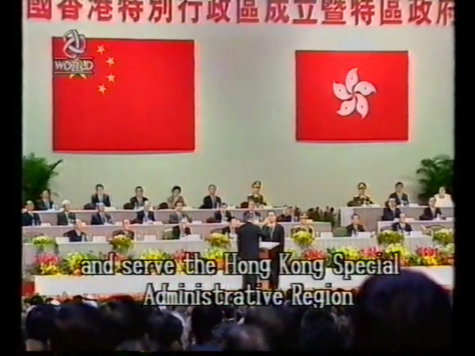
While British rule in Hong Kong had both its positives and negatives, the British did transform Hong Kong into a unique multicultural city and a global financial center.
Now Macau was handed back to China at the stroke of midnight on Dec 20, 1999, and became a Special Administrative Region like Hong Kong. Both territories have a similar status but have different economies and roles in the region.
In the 22 years since the handover in 1997, Hong Kong and Macau have changed exponentially. The Chinese government also has slowly eroded the autonomy of both territories. Macau has had the most erosion of promised freedoms. The small territory of Macau has been compliant to China due to factors such as the gambling economy.
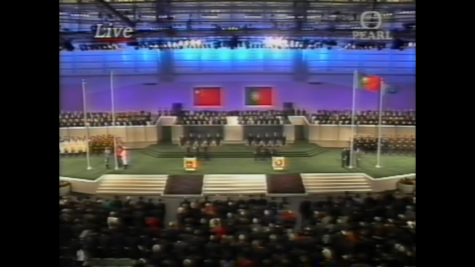
However, Hong Kong as been much more resistant to China in the last 22 years. A major turning point in Hong Kong was the Umbrella movement in 2014. That movement failed in its attempt to get Beijing to allow universal suffrage and the right to directly elect the Chief Executive. But, the Hong Kong people lost their trust in the Hong Kong Police Force and the government.
During the protests of 2014, new pro-democracy leaders gained fame including Joshua Wong, Nathan Law, and Agnes Chow. Chow and Wong were part of the former student activist group, Scholarism. Law was secretary general of the Hong Kong Federation of Students. The three would go on to form the political party, Demosistō, which is promotes civil disobedience and is part of the pro-democracy camp.
Nathan Law would go on to run for local office. Law became the youngest person ever to be elected to the LegCo on Oct 1, 2016. However Law and numerous other lawmakers including Leung Kwok-hung (also known as “Long Hair”) were disqualified by both the Hong Kong court and the National People’s Congress Standing Committee.
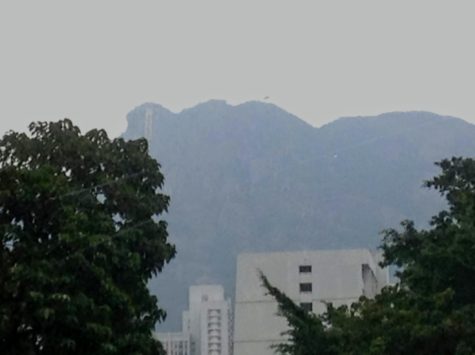
They were disqualified because they used the oath of office for a protest and did not recite it correctly. The controversy was unprecedented in the course of Hong Kong politics because the then Chief Executive, Leung Chun-ying (2012-2017) legally challenged the oaths the lawmakers made and the Beijing government directly intervened by interpretation of Article 104 of the Basic Law.
Along with the influence from the oath-taking controversy, Beijing has been seen to many in Hong Kong as encroaching on the territory in other ways like the West Kowloon railway station for the Guangzhou–Shenzhen–Hong Kong Express Rail Link, the Hong Kong-Zhuhai-Macau Bridge (HZMB), and the 2016 kidnappings of booksellers by China.
The transportation projects such as the HZMB and the West Kowloon railway station are a symbol of the mainland encroaching on the territory due to the fact that both are controlled under the jurisdiction of mainland immigration due to the fact that they connect to the mainland.
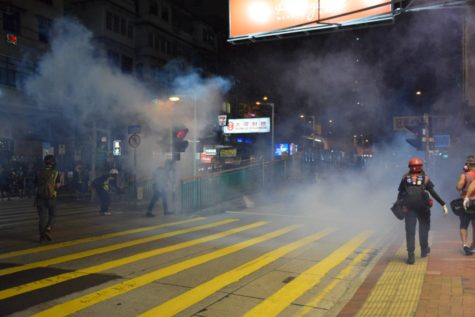
The protests of 2019 have simply been the result of tensions which created an explosion of anger when an extradition bill was proposed by Chief Executive Carrie Lam’s government. Even though the bill has been scrapped, the bill has ignited the desire for freedom and democracy in Hong Kong.
The protests have also created a bad image for the Central People’s Government, the Chinese Communist Party, and President Xi Jinping in mainland China. It has also degraded any belief in Taiwan that “one country, two systems” could be a possible option for Taiwan in the future.
After the Oct 1 protests against the 70th anniversary of the People’s Republic of China, it is obvious that the police have no control over their department. The department is now a shadow of its former self, which as the Royal Hong Kong Police Force (pre-1997), was considered “Asia’s finest.”
The police also shot a pro-democracy protester at point blank range, narrowly missing the teenager’s heart but piercing his lung. These actions also display an obvious violation of the autonomy Hong Kong has.
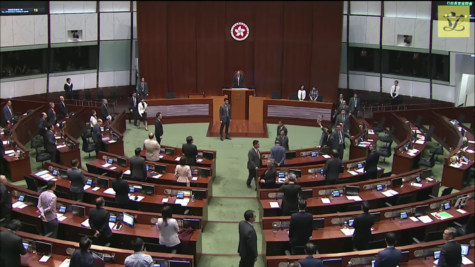
Recently, Carrie Lam enacted the Emergency Regulations Ordinance in order to ban face masks across the entire territory. This colonial-era law allows the Chief Executive and the Executive Council to override the LegCo to enact laws.
The Ordinance has not been used since the communist riots of 1967. The use of the Ordinance opens a pandora’s box of options for Lam and the Central People’s government to detail the pro-democracy movement.
Another bombshell in the saga of the pro-democracy protests dropped on Oct 23, when the Financial Times published an exclusive article that the Central People’s Government was drafting plans to replace Chief Executive Carrie Lam with an interim one by around March of 2020.
The potential candidates to replace Lam have been rumored to be Henry Chan, a former Chief Secretary of Hong Kong, and Norman Chan who was head of the Monetary Authority. Both candidates lean pro-Beijing.
“The central government will firmly support and assist the chief executive and the SAR (Special Administrative Region) government in governing Hong Kong in accordance with law, and in stopping violence and chaos as soon as possible,” said Chinese Foreign Ministry spokeswoman Hua Chunying according to CNN. Both the Central People’s Government and the SAR government have denied these reports so, as of now this is replacement plan is just a rumor.
On Oct 29, Joshua Wong was banned from running in the District Council Elections which will occur on Nov 24. Many speculate that Wong was banned because of his political connections with Demosistō.
“Political censorship is an inconvenient truth that even political neutrality is lost. I wish to apologize to my constituents if I have failed their expectation — to serve the residents as a councilor. But I affirm that, I still believe that democracy begins from the ground,” said Wong.
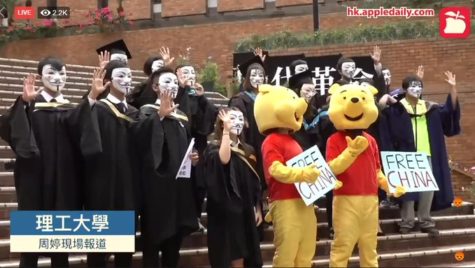
On Oct 31, Hong Kong officially entered a recession as an effect of the protests. The economy has decreased by 3.2% according to CNN Business. This is the first recession for Hong Kong in a decade.
The Hong Kong protests see no sign of letting up and it is up to the people of Hong Kong to stand up for their rights. If they stop, the erosion of Hong Kong’s autonomy will only increase.
As former Governor of Hong Kong, Chris Patten (1992-1997) said in his farewell address on June 31, 1997: “Hong Kong people are to run Hong Kong. That is the promise. And that is the unshakable destiny.”


